Football
My forefather, the Italian lion tamer
It’s funny the things a search into your family history can uncover.
My brother, Peter, recently discovered that the blood of an Italian lion tamer runs in the Merrick family.
Many people would be unaware that I’ve come from a family of circus performers who travelled around the fairgrounds of Scotland in the days prior to computer games and videos – something I’ve always been proud of.
I was a child when my mother’s family and extended family performed in our small circus. But even now – living some 9,000 miles away on the other side of the world – I’m still learning new things about our history.
Peter has been researching the family tree and came across some rather interesting information about Ambrose Salvona, who we’re related to on my mother’s side.
His grave is maintained by the city of Inverness and inscribed on the headstone is, ‘Ambrose Salvona, The Lion Tamer.’
Ambrose married into the Stotts’ family (my mother’s side), who were Scottish, when he arrived in Scotland from Italy in the late 1800s.
We’re still trying to narrow down the exact details of the family tree – if you’ve ever done that you’ll know it can be difficult – but it looks like Ambrose was my great, great, great grandfather. He died in 1917, at the age of 89.
The Salvona/Stott’s family circus toured Scotland predominantly in the early 1900s. It was the period before the big international circuses and everyone in the family did something in the shows.
I had a great uncle and aunt on the trapeze and a grandfather who was a magician. My mother was an acrobat. My great uncle had a boxing tent and, being in Scotland, I am sure he would have had plenty of customers wanting a scrap.
My great aunt was a clairvoyant but often missed sessions due to unforeseen circumstances.
Around the end of the Second World War my mother’s parents and brother died of tuberculosis, which was the beginning of the end of the family’s circus days. I don’t remember most of this in the 1950s and early 1960s but it must have been a very interesting life and a lot of fun.
I never saw the family circus in its prime, but I remember as a young boy travelling in an old caravan around the Scottish lowlands.
I was six when we settled into a house at Stewarton, but every summer for the next ten years or so, we continued to travel the showground route around the country.
The circus was gone but we were part of the fair with our side-stalls, shows and children’s round-a-bouts. The summer festive season was always fun and exciting moving from town to town.
Myself, Peter and one of my two sisters, Nancy, gave away the family business and went on to become physical education teachers. I guess the family’s acrobatic background had something to do with that.
My other sister, Anne, was much more sensible and went into business. She was probably the most athletic out of all of us.
The decision was one that saw my life go in a completely different direction to my family before me, but maybe just as entertaining.

LESSONS FROM THE CIRCUS
I don’t think I would fancy the idea of getting in a cage with those big cats but there are certainly analogies with coaching.
As a coach it’s not in my make-up to want to control anyone through threat or fear. Leadership is about gaining respect through personality and knowledge.
There are times when I would have liked to deal with a player armed with a whip and chair, especially when I coached a character called ‘Mad’ Mick McGorian at Victorian State League club Frankston Pines.
I think his nickname says it all, but that was part of the steep learning curve of coaching and we are good mates now … I think.
I had a great uncle and aunt on the trapeze and a grandfather who was a magician. My mother was an acrobat. My great uncle had a boxing tent and, being in Scotland, I am sure he would have had plenty of customers wanting a scrap.
As a coach and a manager of people, I have to be a good listener and try to understand issues from their perspective. I can provide some direction and advice provided I can empathise with them.
I place great importance on empowering the team to set the mid- to long-term objectives.
I am convinced that early life experiences shape your character and I was fortunate to have the benefit of some great influences in my family.
I hope I have developed positive traits such as forward thinking, a willingness to change and innovate, resilience and an understanding how to make the most of opportunities.

TRANSITION TO AUSTRALIA & COACHING
After college, we were encouraged to visit Australia for a working holiday by our friends the Hay brothers, Derek and Colin, who had emigrated with their parents a few years earlier.
Colin, another entertainer, went on to form the band ‘Men at Work’ and write the pseudo Aussie anthem I Come From A Land Down Under. But he didn’t, really. He was from Scotland.
As a member of the ‘Fairground Travellers’ fraternity I have always enjoyed moving around and exploring. I have been fortunate and had opportunities to move around as a football coach.
The circus was gone but we were part of the fair with our side-stalls, shows and children’s round-a-bouts. The summer festive season was always fun and exciting moving from town to town.
I’ve coached in Hong Kong, New Zealand and two states within Australia. Fortunately, my wife Kerry has a similar outlook on life.
In Australia, I met Ron Smith from the Australian Institute of Sport and he introduced me to coaching and helped me through the necessary accreditation courses. I was fully qualified at 25 but had no intention of ever being a coach.
I was pushed into the job at Doveton SC when Danny McMinimee, the incumbent coach whom I learned a great deal from, departed and no one else wanted the job. I really had no idea what I was doing. I thought about implementing a German style of football but had very limited knowledge and thought that a ‘geriatric’ was a German player that scored three goals.
I was surprised to find that I enjoyed the role, the risks and constant challenges that came with the role but at that stage I wouldn’t say I was coaching. It was more a case of coping.
We had such a great bunch of good old-fashioned blokes who loved the game, a scrap (on-field and nearly within the rules), a beer and a laugh. There was no VAR then, thank goodness. I think I miss those days.
Maybe I should recruit the person who embodied that philosophy and could actually play as well – Steve Irvine. His son, Jackson, is currently in the Socceroos.
We created our own entertainment, which was mostly off the field, and shared experiences all of which seemed to link me to my past. I discovered that I would rather do something exciting than be a routine sort of person.

ADAPTING STRATEGY TO PERSONALITIES
My belief as a coach is that you continually try to evolve and innovate.
The moment you think you know it all, you stop learning and you not only stand still, you go backwards at a rate of knots. I have rotated around the sun 64 times and although I feel a wee bit dizzy at times I haven’t peaked, yet. Not even close.
Every two or three seasons you have to virtually reinvent yourself – to be able to get things across in a new way, because the game is always changing. It constantly modernises. Wingers become strikers, fullbacks become wingers and midfielders become extra attackers.
I gradually moved on from the team talks I received as a youngster, where the biggest player in the team, usually the centre-half, was the strategist – ‘If it moves kick it. If it doesn’t move, pick it up shake it and then when it moves kick it!’
Strangely it worked sometimes … I’m thinking of using it next weekend!
When I was appointed head coach at the Jets I did my homework and studied all of last season’s matches. The core of the squad was good but there were several glaring problems.
Firstly, there were too many young, inexperienced players in the squad and, secondly, a distinct shortage of goal scorers. And, finally, the spine of the team needed strengthening.
Quality players were required down the middle – striker, number ten, attacking midfielder, centre back and back-up goalkeeper. Hence, we targeted good quality, experienced players in these positions – Roy O’Donovan, Ronald Vargas, Dimi Petratos and Nikolai Topor-Stanley.
This was the start of a comprehensive recruiting campaign.
It has been said many times that football is a simple game that is made complicated by coaches and this is very true.
The approach we have adopted at the Jets is freedom in attack, which allows creativity, and strict structure in defence, where everyone must do their defensive job without variations. Everyone must accept accountability.
Fearless risk-taking is an expectation and the understanding that mistakes are a part of learning.
The aim is to complete 80 per cent of tasks and everything above that is a bonus. As a coach, I have to convince individuals that they have enormous potential and they are capable of achieving at the highest level.
Resilience and self-management are crucial. Trapeze artists have lots of falls before they get it right and that is when a safety net is useful. Push the limits but always have a safety net.
The moment you think you know it all, you stop learning and you not only stand still, you go backwards at a rate of knots. I have rotated around the sun 64 times and although I feel a wee bit dizzy at times I haven’t peaked, yet. Not even close.
Once again, I think I gained these attributes because of my background and upbringing. My resilience and positive approach was certainly tested in the first A-League season 2005-06.
As coach of Melbourne Victory FC, we finished the season second last. However, the chairman and board were totally supportive and over the next four seasons Victory competed in three grand finals.
The support that an organisation receives from the top is a critical factor in determining the success or otherwise of any sporting body or business. I believe that Newcastle Jets have a very positive management structure from the owner Martin Lee to the chief executive Lawrie McKinna.
There is an understanding that everyone has to perform to gain success and it is not just what happens on the field.
Lawrie has an incredible work ethic. He works all day, from early in the morning and into the night, running the club and also finds time to coach the Jets youth team.
There are politicians who still ring him for advice from his days as Mayor of Gosford. That’s the strength of reputation he has. He’s an incredibly energised person who knows football back to front.
He is empathetic and understands the challenges and all aspects of running a football club. I can’t quite visualise him as the Ringmaster, though – with tight white pants, high boots, red tails and a top hat – but his role is somewhat similar.

THE CONFIDENCE MYTH
I’m really tough on the players who are highly critical of themselves. If they’re continually negative about how they play, and endlessly fault their actions then they have a problem. Their approach needs to change to a much more rational perspective where mistakes don’t link so much with emotion.
As I stated earlier, mistakes are part of the learning process. Mick Doohan had a lot of injuries from falls as a motorcycle racer, but he won the world championship five times by pushing himself to the limit and making mistakes under pressure. Mistakes are lessons to be learned.
The notion of confidence always comes up in sport. Confidence is an abstract thing, it is an emotional feeling. It’s not an important word or concept to me – it’s what the average psychologists talk about far too much.
I haven’t heard of a surgeon yet who, just before he’s about to operate, pulls the pin and says, ‘No, I don’t really feel that confident today, I think I’ll give this one a miss.’
They’ve got a job to do, they know what their job entails, they are highly trained and the focus is on the first incision and the rest follows.
Sports people are no different. Clarify the job description within the team and concentrate on the trained actions/response and put feelings aside.
THE ROAD AHEAD FOR THE JETS
The Jets haven’t made the finals for a long period, but forward strides can be made relatively quickly with the right people and right plan in place.
We’ve started off well and have competed and scored goals in all 11 rounds to date and occupy second place on the table.
Despite several injuries to key players we have made adjustments, introduced relatively inexperienced players and adapted our structures to suit the capabilities of the players.
The approach we have adopted at the Jets is freedom in attack, which allows creativity, and strict structure in defence, where everyone must do their defensive job without variations. Everyone must accept accountability.
Versatility is vital as personnel constantly change due to injuries, national call-ups and suspensions.
An indication of a team’s potential is often demonstrated when a win is achieved from a very average performance and poor execution of the game plan.
But if the team has a number of committed goal scorers, then three points are always a possibility. I think the team’s adoption of a very positive, proactive mindset has delivered goals under all sorts of circumstances already this season.
I maintain that I don’t coach skills, rather I coach people. The aim of our coaching and development program at the Jets is to focus on individuals. Help them to achieve their objectives and, in the meantime, enjoy the journey.
The collective principle is to be forward and forthright at every opportunity. Prepare well with attention to detail, take risks, compete with purpose and be accountable.
Like the innovative circus performers – entertain, push the limits, live and challenge in the ‘here and now’ and show what is possible.
Finals, here we come!
More about: A-League | Coaching | Ernie Merrick | Melbourne Victory | Newcastle Jets | Sponsored
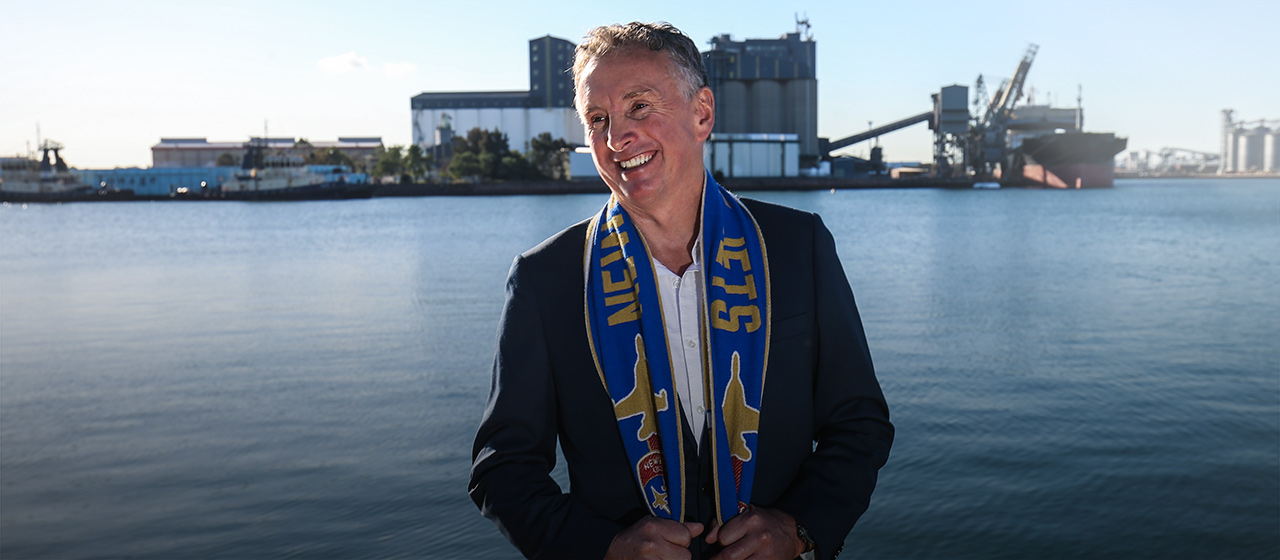
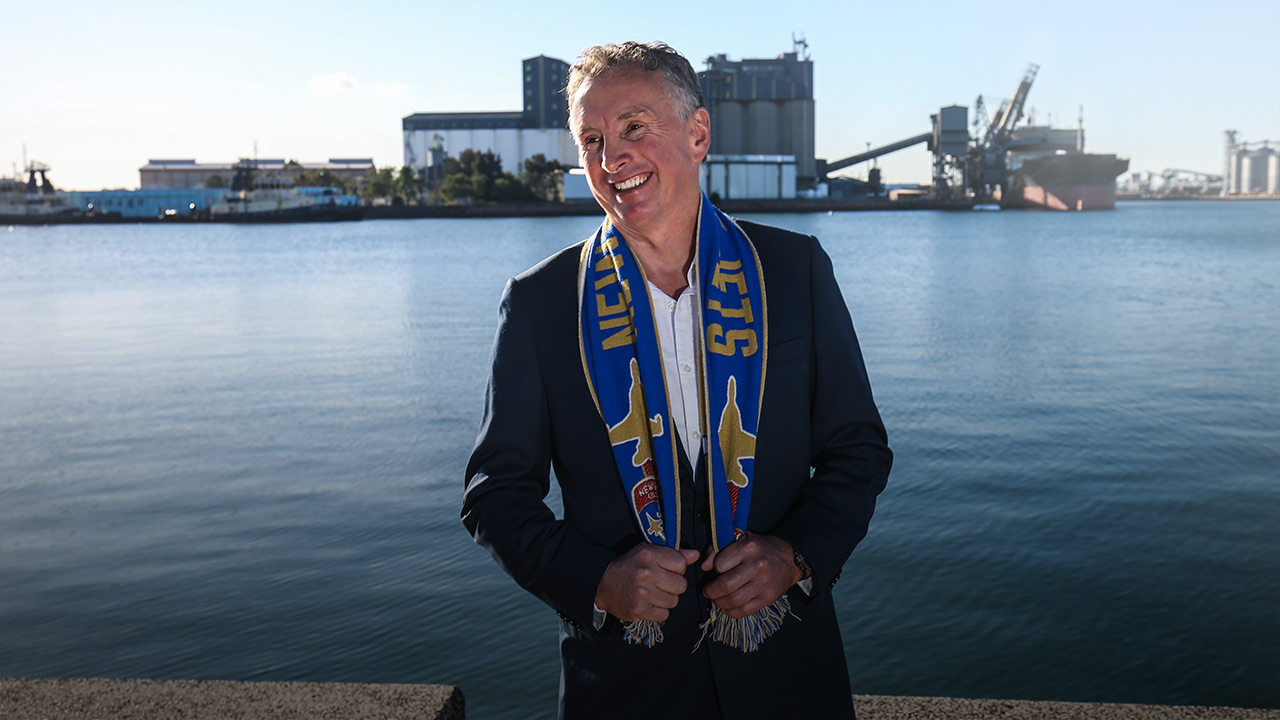
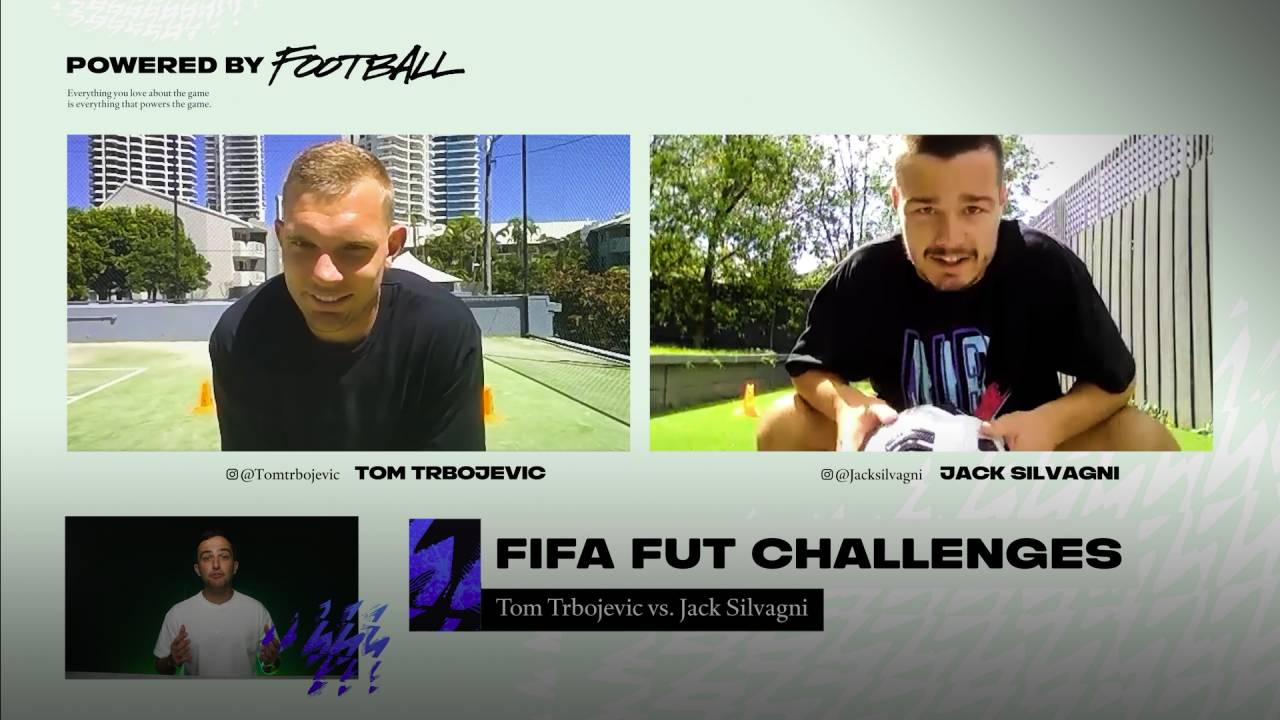
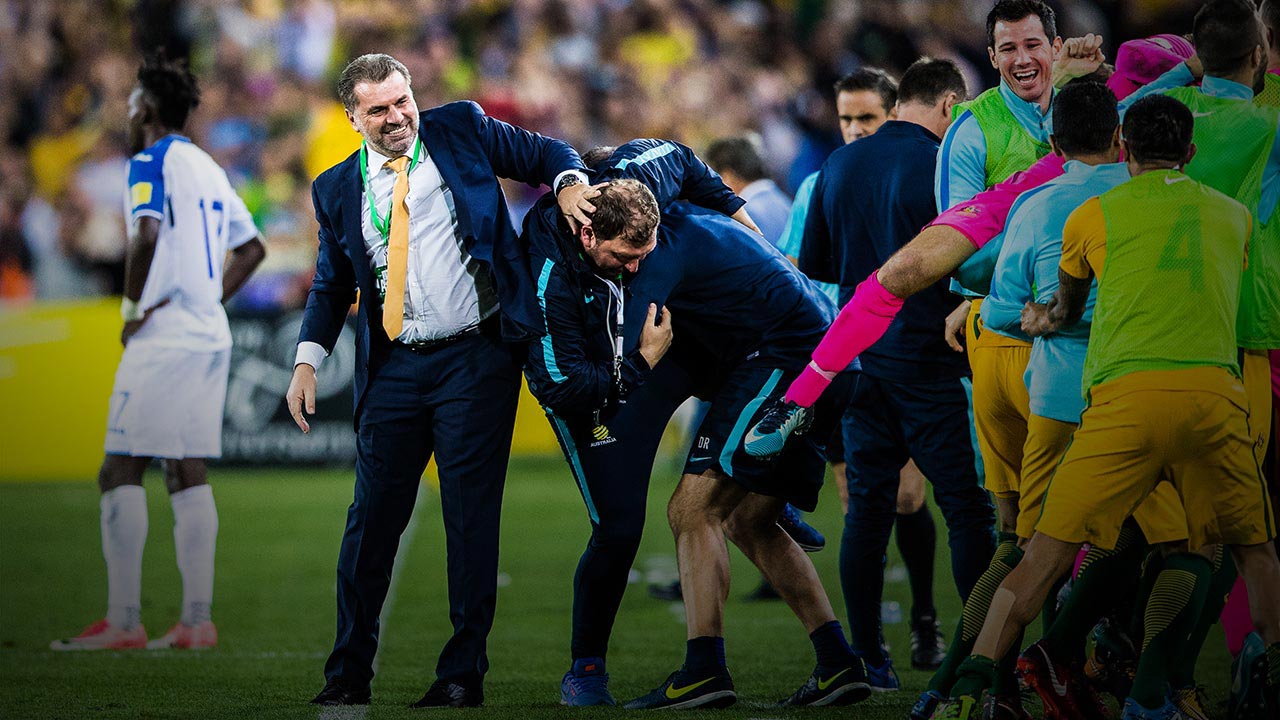
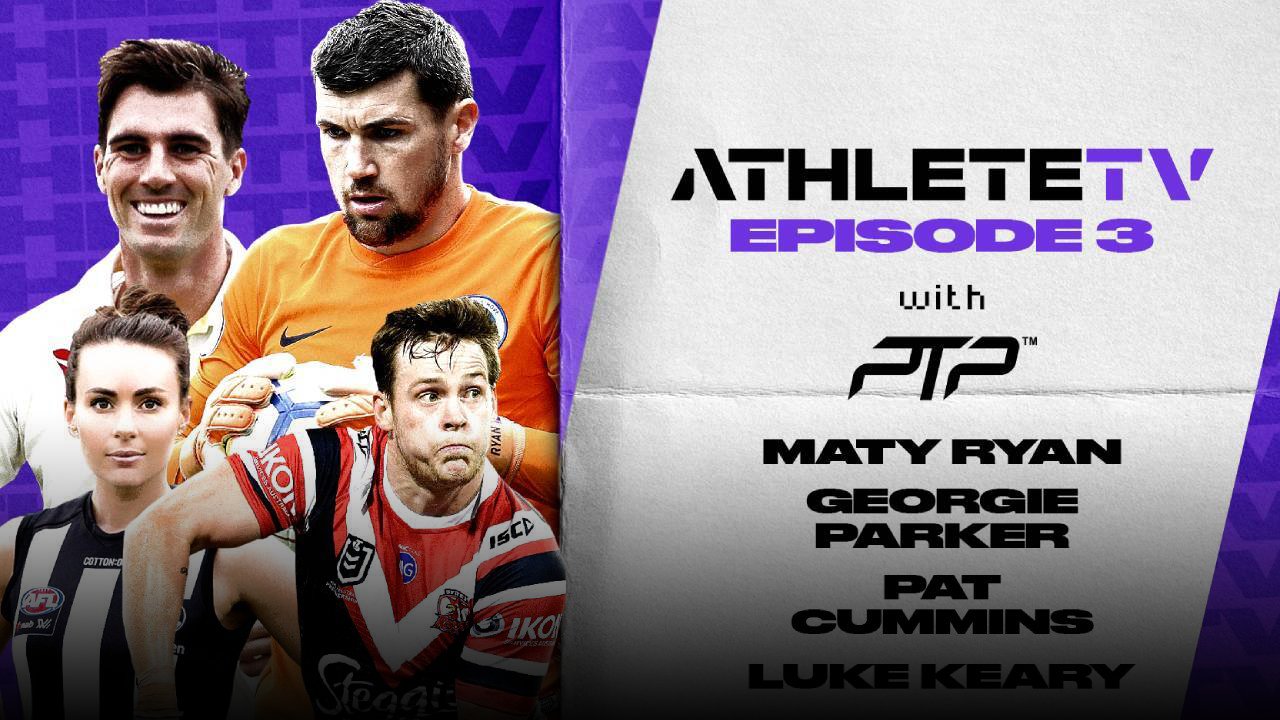
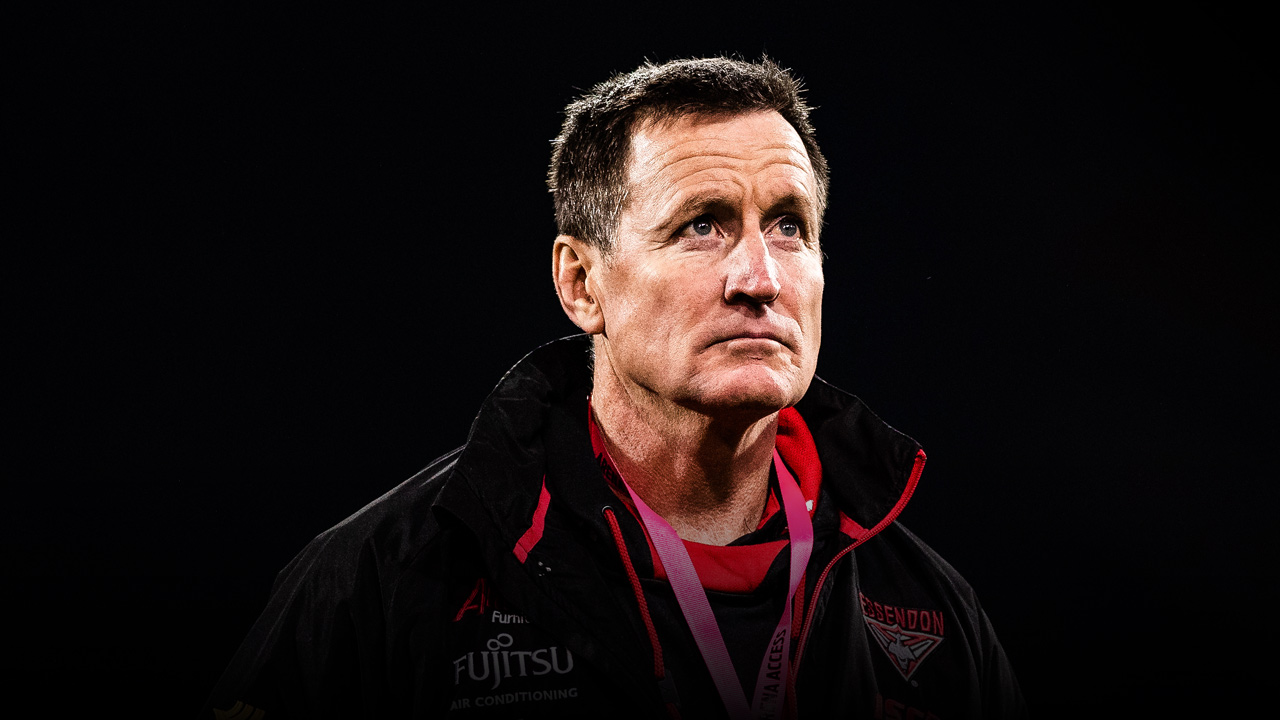
 Load More
Load More